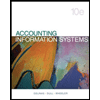You are auditing the Digos People’s Cooperative with a substantial annual sales, all of which are billed and collected locally. During your preliminary review of internal control, you discover the following procedures for handling cash receipts: Cash collections on over-the-counter and COD sales are received by the cashier from the customer or from the delivery service. Upon receiving cash, the cashier stamps the sales ticket “paid” and files a copy. The only record of COD sales is a copy of the sales ticket, which is given to the cashier to hold until cash is received from the delivery service. Mail is opened by the credit manager’s secretary, and remittances are given to the credit manager for review. The credit manager then places the remittances in a try on the cashier’s desk. At the time of the daily deposit – called “deposit cutoff time” – the cashier delivers the checks and currencies to the assistant credit manager, who prepares remittance lists and the bank deposit, and carries the deposit to the bank. The assistant credit manager also posts remittances to customer accounts receivable files and verifies allowable cash discounts. You learn that the credit manager obtains approval to write-off uncollectible accounts from the executive office of the cooperative, and that as of the fiscal year, some remittances that were received on various days during the last month are retained in the credit manager’s custody. Required: Describe the fraud that might occur under the procedures now in effect for handling cash collections and remittances of the Digos People’s Cooperative. What procedures would your recommend to improve control over cash collections and remittances?
You are auditing the Digos People’s Cooperative with a substantial annual sales, all of which are billed and collected locally. During your preliminary review of internal control, you discover the following procedures for handling cash receipts:
- Cash collections on over-the-counter and COD sales are received by the cashier from the customer or from the delivery service. Upon receiving cash, the cashier stamps the sales ticket “paid” and files a copy. The only record of COD sales is a copy of the sales ticket, which is given to the cashier to hold until cash is received from the delivery service.
- Mail is opened by the credit manager’s secretary, and remittances are given to the credit manager for review. The credit manager then places the remittances in a try on the cashier’s desk. At the time of the daily deposit – called “deposit cutoff time” – the cashier delivers the checks and currencies to the assistant credit manager, who prepares remittance lists and the bank deposit, and carries the deposit to the bank. The assistant credit manager also posts remittances to customer
accounts receivable files and verifies allowable cash discounts. - You learn that the credit manager obtains approval to write-off uncollectible accounts from the executive office of the cooperative, and that as of the fiscal year, some remittances that were received on various days during the last month are retained in the credit manager’s custody.
Required:
- Describe the fraud that might occur under the procedures now in effect for handling cash collections and remittances of the Digos People’s Cooperative.
- What procedures would your recommend to improve control over cash collections and remittances?
Fraud is deception with the intent of obtaining an illegal advantage for the perpetrator or depriving a victim of a right. Fraud can take many forms, including tax fraud, credit card fraud, wire fraud, securities fraud, and bankruptcy fraud. A single person, a group of people, or an entire corporation can engage in fraudulent behaviour. Fraud is defined as deception with the intent to profit illegally or unethically at the expense of another. Financial fraud includes making false insurance claims, falsifying books, pump and dump scams, and identity theft leading to illegal transactions.
Step by step
Solved in 3 steps









